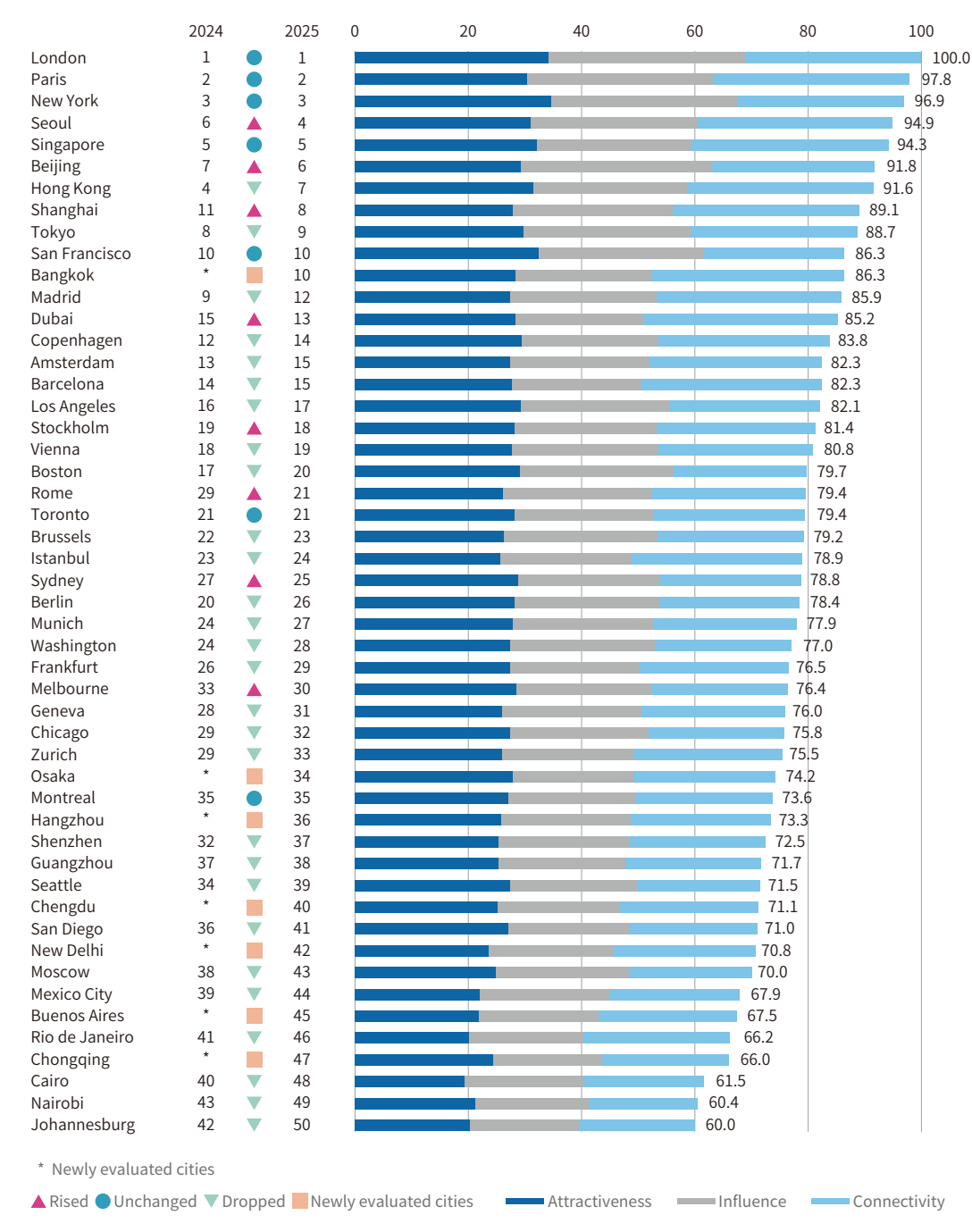The International Exchange Center Index (IECI) 2025 was released Wednesday in Beijing by the China Institute for Development Planning of Tsinghua University and Deloitte China.
This is the third consecutive release of the IECI, following its global launches in 2023 and 2024. Themed "International Exchange Centers amid De-globalization: Navigating Opportunities and Challenges," this year's report explores how global cities are addressing trade frictions, geopolitical risks, and other headwinds, while leveraging adaptability to uncover new opportunities.
The 2025 edition retains the index's core research framework of attractiveness, influence and connectivity, while expanding its analysis in the context of de-globalization. Technical methods have been refined, and the number of evaluated cities has been increased to 50, with a stronger representation of developing countries.
The top 10 cities in the 2025 comprehensive ranking are London, Paris, New York, Seoul, Singapore, Beijing, Hong Kong, Shanghai, Tokyo, San Francisco, and Bangkok, with San Francisco and Bangkok tied for the 10th place. Compared with the previous year, London, Paris, and New York continue to rank in the top three. Seoul, with its progress in technological innovation and business exchanges, has entered the top five for the first time, rising to the fourth place. Beijing, with improvements in its business environment, recovery of inbound tourism, technological innovation, and transportation connectivity, has risen one place to the sixth position. Shanghai, with the recovery of inbound tourism, economic development, and cultural education, has jumped from the 11th place to the eighth place, entering the top 10 for the first time. Singapore and San Francisco have maintained their rankings at the fifth and 10th places respectively. Hong Kong has dropped three places to the seventh place, Tokyo has fallen one place to the ninth place, and Madrid has dropped out of the top 10, falling to the 12th place.

The report shows that the status of international exchange centers is closely tied to economic size, but long-term growth relies on harnessing the "population quality dividend." Moreover, multi-center urban systems often have stronger resilience against de-globalization shocks, and compared with countries, cities show greater flexibility in adapting to global changes, with dense urban networks acting as stabilizing forces.
The report suggests that international exchange centers need to proactively adjust their functional positioning, upgrade industrial structures, and strengthen institutional openness. It calls for stronger inter-city cooperation, continued leadership in technological innovation, a balance between security and openness, and diversified trade routes, hence positioning cities as safe havens amid global uncertainties.
As the world's first index report dedicated to international exchange centers, the IECI has now been released for three consecutive years. Through data collection, index calculation, and qualitative research, it provides insights into the role of global cities in economic, political and cultural exchange. By tracking changes in the strengths and weaknesses of each participating city, the report offers a valuable reference for policymakers and urban planners in shaping strategies for global engagement and sustainable development.


 Share:
Share: 




 京公网安备 11010802027341号
京公网安备 11010802027341号